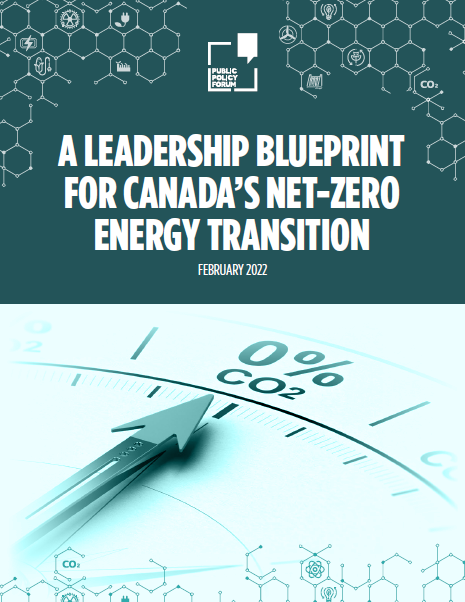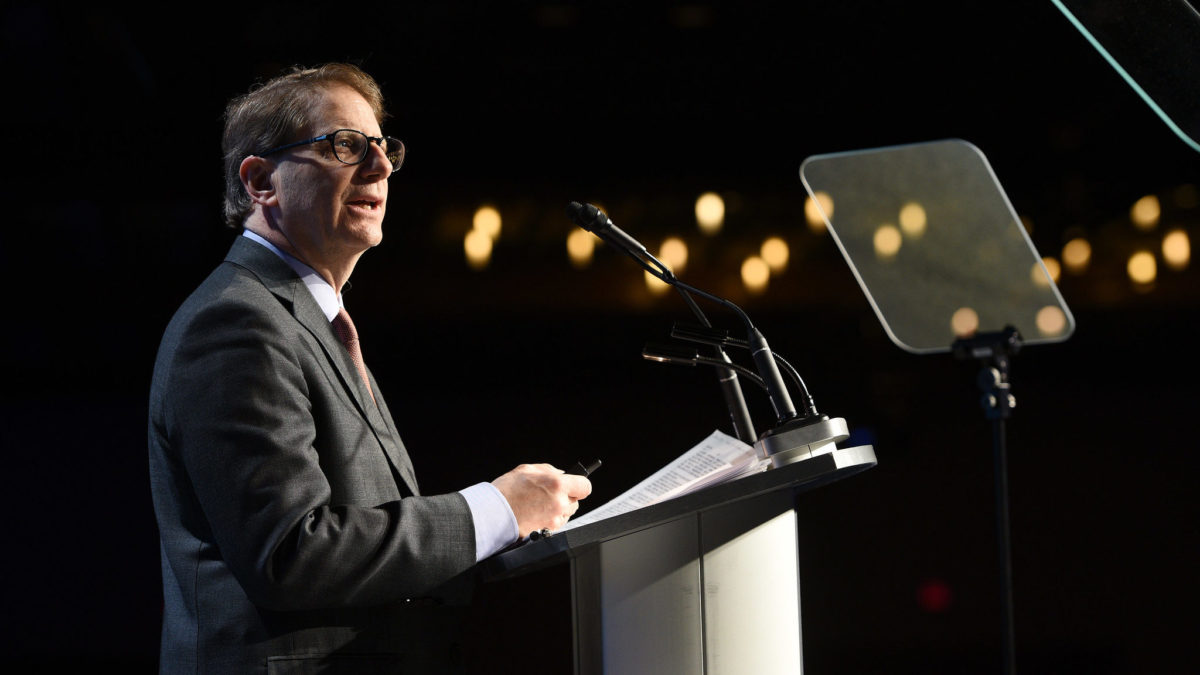
A Leadership Blueprint for Canada’s Net-Zero Energy Transition
The time has come for Canada to set out a clear, realistic and attainable plan to meet its climate objectives in a way that reflects our national interest and the global good. The Leadership Blueprint for Canada’s Net-Zero Energy Transition does exactly that. For more than two years the Energy Future Forum initiative of the Public Policy Forum engaged with a broad national cross-section of environmental, economic and Indigenous stakeholders. The Leadership Blueprint’s uniqueness is the breadth of its engagement and that it provides a specific framework for the development of clean supplies of energy that meet or exceed climate objectives, generate shared prosperity, unleash innovation, avert price shocks to consumers and further the cause of reconciliation with Indigenous peoples.
The climate debate in Canada is shaped by two competing visions. One calls for an energy transition that involves an accelerated phaseout of fossil fuels. The other envisions a strategy of aggressive decarbonization. Both lead to the same outcome of a net-zero future by 2050, but each has different implications for the Canadian economy and the disruptions that would result. It is time for Canada to choose its policy path forward, based on a bottom line that there can be no equivocation from the goal of reaching our climate objectives.
The Public Policy Forum believes that policies to support aggressive decarbonization form the most realistic route forward to achieve Canada’s climate goals. This path will best recognize the underpinning realities of Canadian economy. The Leadership Blueprint sets out a priority agenda for an energy transition with calls to action. At the heart of the strategy is a public-private partnership in pursuit of the common goal of a net-zero future. It requires that government climate and economic policies are coupled with commitments and measurable actions by industry that meet climate objectives and reflect the national interest.
The calls to action in each of the 3 areas form clear and comprehensive commitments. In terms of the environment, the Blueprint sets out long-term environmental undertakings that include 8 action priorities that will ensure measurable, accountable and absolute declines in GHG emissions beginning in the 2020s on the way to net zero by 2050 or sooner. The economic calls to action recognize the foundations of the Canadian economy by reflecting the need for an energy transition based on clean energy investments by industry supported by government policies that will ensure energy security, affordability and continuing economic growth as part of an inclusive economy. The need for Indigenous reconciliation must be a central focal point of the energy transition. The calls to action set out specific commitments by industry, so that First Nations have the opportunity to be full partners in sustainable resource development of Canada’s continuing economic growth.
The Leadership Blueprint provides a comprehensive, balanced and practical roadmap for the way forward. It is built on the foundation of a broad and sustainable consensus, one that brings together the environment, economy and Indigenous reconciliation, and supports the public good and Canada’s national interests.









